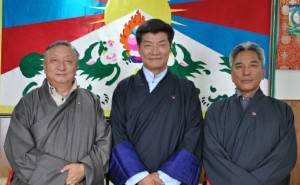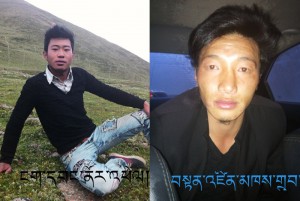The two representatives of His Holiness the Dalai Lama who had been in talks with Chinese officials on the future of Tibet since 2002 have resigned as of 1 June. In their formal resignation letter, Special Envoy Lodi G. Gyari and Envoy Kelsang Gyaltsen cited the “deteriorating situation inside Tibet since 2008 leading to the increasing cases of self-immolations by Tibetans.”
The envoys also expressed frustration at the lack of progress in talks with China over Tibetan autonomy and blamed the increasingly hard-lined approach of the United Front Work Department. “One of the key Chinese interlocutors in the dialogue process even advocated abrogation of minority status as stipulated in the Chinese constitution thereby seeming to remove the basis of autonomy,” the letter said in reference to the Chinese representative in the talks, Zhu Weiqun.
The letter concluded that “at this particular time, it is difficult to have substantive dialogue.”
It was later announced by Beijing that Mr. Weiqun had been replaced by Zhang Yijiong following the Tibetan envoys’ resignations. Mr. Weiqun, then Vice Minister of the United Front Work Department and chief negotiator since 2008, was behind the controversial proposal earlier this year to strip Tibetans of their official minority status. His 67-year old replacement is a long-time member of the Communist Party of China and will take over negotiations with the Tibetan task force.
Talks between the two sides had been stalled for two years due to differences over the memorandum of genuine autonomy submitted in 2008. Chinese officials said the memorandum amounted to “disguised independence,” and objected strongly to the proposal by the Tibetan task force that Tibetans should have limited legislative powers in both the Tibet Autonomous Region (TAR) and the neighboring provinces of Sichuan, Qinghai, Gansu and Yunnan.
Kalon Tripa Dr. Lobsang Sangay, Head of the Central Tibetan Administration, expressed regret at the resignations but commended the two envoys in their efforts over nine rounds of talks with Chinese representatives since 2002. He added that the Kashag (Tibetan cabinet) “will continue to rely on them for their wise counsel. They will remain as senior members of the Task Force team.”
In a statement on 3 June, the Kashag also announced that the Tibetan Task Force on Negotiations would be expanded and would meet again in December 2012 to discuss the Chinese leadership transition expected to occur this November. The letter concluded by urging Beijing to accept the “Middle Way” approach that seeks genuine autonomy for Tibetans over outright independence.





 Print
Print Email
Email